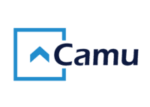
The Importance of Outcome-Based Education in A Modern Educational Set Up
The world is experiencing multiple transitions at a rapid pace, be it in education or corporate space. At a volatile time like this, the demand for T-shaped skills or T-shaped persons is extremely high. The T-shape model is essentially a metaphor used in job recruitment to describe the abilities of persons in the workforce. The vertical bar on the letter T represents the depth of knowledge and expertise in a single field, whereas the horizontal bar comprises the ability of one to collaborate across disciplines and to apply knowledge in parallel areas of expertise.
Within this current landscape, which is strife with socio-cultural, economic and demographic changes, companies must increase their competitiveness by improving human resources. Outcome-Based Education helps prepare graduates to this end by combining hyper-specialized knowledge with dynamic and cross-sectional capabilities, through revolutionizing curriculums.
While we have already addressed OBE at length in our previous blogs, let’s take a closer look at it from the perspective of T-shaping higher education.
OBE Versus Traditional Education
Change is the only constant today, and with it, comes the need for education systems to update and adapt their approach or risk becoming obsolete altogether. Outcome-Based Education (OBE) is a pedagogical model that entails the restructuring of curriculum, pedagogy and assessment practices to reflect the achievement of high-order learning, as opposed to a mere accumulation of course credits. While the traditional education system focuses on what is taught, OBE places emphasis on what is learned, and this distinction is very important. The latter is a student-centric model that incorporates real-world scenarios into the mix. The knowledge, skills and attributes that students take away at the end of a program or course are more valuable than what, or how, something is taught. A traditional education system relies heavily on standardized processes, wherein students assemble under one roof at a particular time to be instructed by a teacher. After the completion of a lecture, learners interact with peers or clear doubts with faculty members. This means, the effectiveness of the education system largely depends upon the efficacy of the teacher and the knowledge base of peers. OBE, on the other hand, is an education system built on specific outcomes. It focuses on the skill sets students to acquire following the completion of their studies. Activities in or outside the classroom are designed in a manner so as to helps students achieve these outcomes.
Breaking Down the Benefits and Drawbacks
One of the most profound benefits of OBE is the sense of clarity it fosters. Students, along with their parents, can pick an institution, program and course based on clearly spelled out learning objectives. The Course Outcome (PO), Program Outcome (CO), Program Specific Outcome (PSO) and Program Educational Objective (PEO) determine exactly what students are expected to accomplish, post their course or program respectively. This clarity is further reflected in the quality of teaching and delivery, across divisions and departments, where faculty may adjust their focus more appropriately. The next advantage, and perhaps the most obvious one, is flexibility. OBE empowers students to choose what they would like to study and how they would like to study it. Not only does it adapt to a learner’s strengths and weaknesses, but it also provides sufficient time to attain proficiency and fluency in the subject matter. Additionally, the model allows the learner to transfer their credits and switch to another institution that is accredited with the OBE syllabus. Institutions are recognized, benchmarked, and can be easily compared with one another based on this accreditation. As you can see, every stakeholder benefits from the OBE framework.
Like with most pedagogical models, OBE comes with its fair share of challenges. First and foremost, is the aspect of interpretation. The framework lacks a prescriptive set of instructional design. While outcomes are clearly demonstrated, there is also much room for interpretation. Plus, with the amount of jargon present, it is easy to get caught up in the technical phrases rather than focus on the meanings behind each one. Constructing learning outcomes can also be difficult as well as time-consuming. This brings us to the next drawback. OBE works well with vocational education streams like engineering and sciences vis a vie the arts. The latter includes subjects such as literature and philosophy that require a more free-flowing structure. But perhaps the biggest disadvantage relates to the aspect of the assessment. Paper pencil tests don’t bring out the best in OBE. Yes, it requires diverse kinds of assessments, from group projects to quizzes. Furthermore, OBE within the virtual landscape is difficult to evaluate. Ultimately, the trick to dealing with the drawbacks is to strike a balance between what is expected and what is realistic.
A Glimpse into the Future Did you know, the majority of current school children will be entering jobs that perhaps do not exist today? The corporate world (manufacturing and/or services) is being and will continue to be, disrupted by innovations in technology, coupled with socio-cultural, economic and demographic changes. As such, OBE will be standing at the threshold of a new world, one where students will be required to navigate an ever-changing global landscape. Here is what we can expect. An increasing number of students seeking newer skills to propel their careers further. Higher demand for vocational training. Flexible degrees. Competency-based programs. What’s more? Teachers may evolve from their roles as disseminators of knowledge to facilitators of knowledge.







